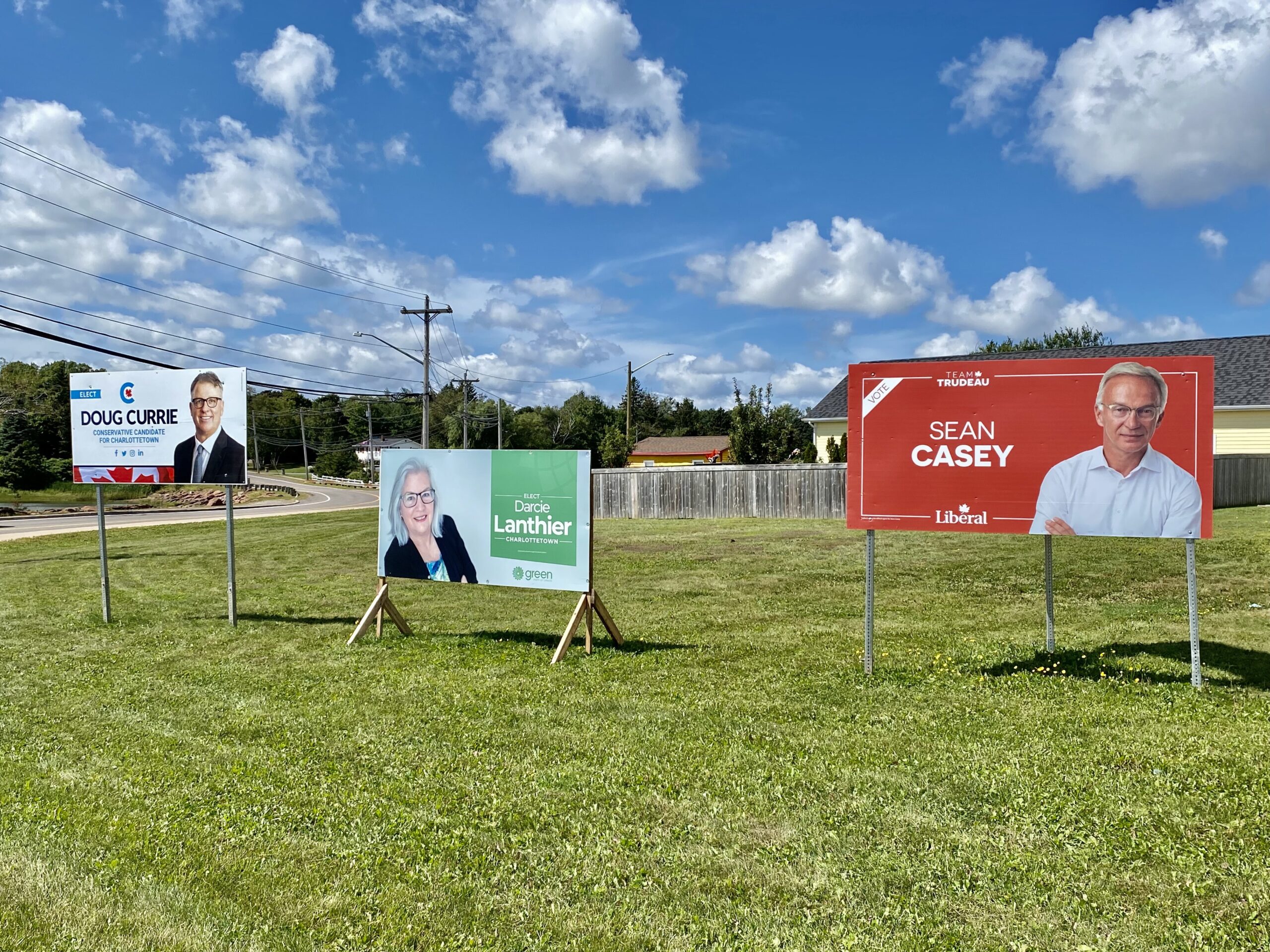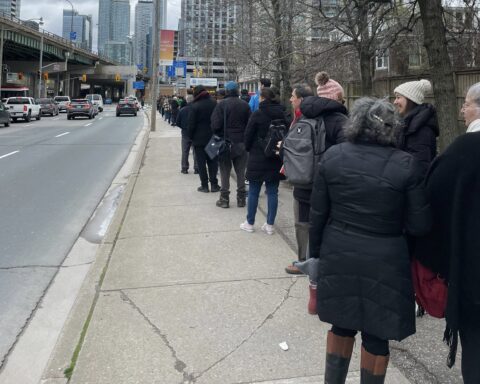Elections Canada is urging community leaders and associations to get new Canadians to vote this coming election.
“This is an important message to get out because the voter turnout among new Canadians has been historically low,” said Andrea Marantz, Regional Media Advisor for Elections Canada in B.C.
“We are reaching out to community leaders across the country through our Inspire Democracy platform, and a handbook for community leaders, and are urging them to get the message out,” she told New Canadian Media.
Compared with established immigrants (those who have lived in the country for 10 years or more) and non-immigrants, new Canadians (those who’ve immigrated to Canada in the previous 10 years) were less likely to vote in the 2011 general election. This was also the case in 2015, although the gap between the two groups narrowed, according to Elections Canada.
Many reasons have been put forward to explain this, including the lack of democratic traditions in some regions of the world, the lack of trust in institutions, or differences in political culture. Immigrants from Eastern Europe and East Asia had the lowest voter turnout rates.
The data also show differences in civic engagement. New Canadians are less likely than non-immigrants and established immigrants to be members of a group, organization or association, such as sports and recreational organizations, or union or professional associations.
In 2015, youth (aged 18–34) who were born in Canada were more likely to say that they had voted in all or most elections for which they were eligible (64 per cent), compared to youth who were not born in Canada (48 per cent), according to the National Youth Survey (NYS).
Among those heeding the call from Elections Canada is Ally Wang, a Chinese-Canadian living in Richmond, B.C., who recently launched the website CCGTV.org or (Chinese-Canadians Go To Vote).
“We have always had historically low voter turnout numbers since 1947, when Chinese-Canadians got the right to vote,” said Wang.
“When Chinese people gather, they talk about their kids’ school, shopping and other things, but not politics…This is the culture, and we need to change that and get them to participate more in politics…Then, there are language barriers where the candidate’s message doesn’t get across to the Chinese-Canadian voter,” she said.
The Richmond Centre riding, which has the highest percentage of Chinese-Canadian citizens in B.C., had the lowest voter turnout in the province in the 2015 election.
Wang and her colleagues, who established the website, are currently canvassing candidates across the country for their views on Chinese-Canadian issues with five questions, including how they will respond to discrimination against the community, China-Canada relations, and what they will do if the English media vilifies the community.
“We hope the answers which will be posted on the website will create discussion, because they are specific issues raised by the community,” said Wang.
Wang’s group is also sending the message to her community not to vote for candidates simply because they are Asian or Chinese or come from the same cultural background.
“There is a tendency in ethnic communities to do that because the candidate speaks the same language or mother tongue or shares the same heritage,” she said.
In neighbouring Surrey, where 43 per cent of the population is comprised of immigrants and where the top three languages spoken at home are Punjabi, Chinese and Tagalog, veteran radio host, Gurpreet Singh, said he constantly urges the community to get out and vote on his shows.
“I keep reminding my listeners on how hard the community fought for the right to vote and why we need everyone to vote to maintain our vibrant democracy,” said Singh.
He said the farmers crisis in India and the plight of Sikhs and Hindus in Afghanistan are among the international issues raised by the community.
“People want to know the candidates’ views on the issues affecting their homelands as well as other core issues like housing affordability and climate change…Candidates that can speak to both resonate with Surrey voters, especially those from the South Asian community,” he said.
The Native Women’s Association of Canada (NWAC) has also launched a get out and vote campaign, entitled “We’re done asking, we’re voting.”
The campaign seeks to engage Indigenous women from coast-to-coast-to-coast to get out to the polls and make their voices heard.
“Indigenous women have waited long enough for the Government of Canada to make our issues a priority,” said NWAC CEO, Lynne Groulx. “This election, we’re done asking, we’re voting. When political parties see us show up at the polls, they are going to have to start listening and taking action.”
“Canada’s electoral system is a system of Western colonization, but it’s the system we have,” she added. “The only way to make change, to get to self-determination, to protect our communities and the land, is to make sure our voices are represented in Parliament. The way to do that is to exercise our human right: the right to vote.”
The Canadian Alliance of Chinese Associations (CACA), with a membership of over 130 Chinese associations, is also actively working on getting the message to its members on the importance of turning up at the ballot box.
At a recent press conference, Renming Wei, acting chairman of the group, said many Chinese-speaking immigrants either do not vote or vote for people of Chinese descent.
“We have the lowest voting turnout among all ethnic groups and our voices never get heard by decision-makers,” he said. “If we want to be heard, we need to get out and vote.”
A multiple-award winning journalist, Fabian Dawson is an internationally acclaimed author, filmmaker and media expert. His work over the last four decades spans the globe and he also serves as a consultant/strategic advisor to a variety of international companies. As deputy editor-in-chief of The Province, part of the Postmedia chain, Dawson led initiatives within a special publications group to provide directed content for a variety of organisations. He was named the 2019 recipient of the Bruce Hutchison Lifetime Achievement Award at Jack Webster Awards. Dawson has been invited by the governments of India, Malaysia, Taiwan, China, Hong Kong and the United States to act as a media observer/advisor on a variety of Asian-Canada issues. Dawson, now operates FD Media, which specializes in harnessing editorial assets to revenue generating opportunities.





